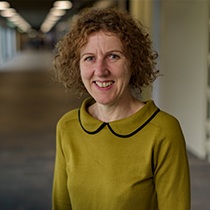Traineeship Social Education
Traineeship
Practice placement possibilities fall within the specialisation of pre-school education (Early Childhood Education), aimed at pedagogical work with children ages 0-5.
Target Group
Social Education/Pedagogy/Early Childhood Education students from a bachelor programme.
Particularly suited for Social Education students from the Nordic countries or students proficient in English at an advanced level (preferably at C level and above in the Common European Framework of Reference for Languages (CEFR)).
Important: Practice placement possibilities fall within the specialisation of pre-school education (Early Childhood Education), aimed at pedagogical work with children ages 0-5, in the Danish Social Education degree programme.
Purpose
Doing a practice placement in Denmark offers a number of advantages. You can:
- see how you can adapt to a different culture
- face new professional challenges and solutions
- get a broader understanding of Social Education, where you will apply theory to hands-on practice
- expand your career opportunities
Teaching Methods
Teaching and learning methods
There will be no formal lectures or teaching. Students will participate in 1 - 2 study days arranged by UCL (depending on the duration of the stay).
Students will draw on the skills they have acquired and applied within the internship to complete the written assignment.
Skills and competencies
On completion of the internship, students should be able to
- Critically discuss and implement pedagogical theories and methods into their own practice
- Identify and analyse conditions encountered during the internship and reflect on the internship experience, utilizing the knowledge, skills and competencies acquired during the programme.
Conditions
Special conditions with regard to the student’s health and physical condition may apply.
Students with a criminal record will not be accepted.
Tuition Fee
Not applicable for EU/EEA-students and exchange students from partner institutions, all other students must pay. In this case, please send an e-mail to international@ucl.dk to learn more.
Type of Activity
Name
Practice Placement
ECTS
1.5 ECTS per week based on duration
Workload
The practice placement entails approximately 30-32 hours per week on site in a Danish childcare facility (nursery, day-care centre, district home care).
Learning Outcome
Depending on the length of the practice placements, the learning goals will be stipulated from these 2 broad focus areas:
Outcome A: Childhood, culture(s) and learning
The area addresses how to employ culture(s), nature and aesthetical means of expression in social educational activities to support children’s and infants’ well-being, general education and learning.
Competence goals: the student knows how to apply resources from nature and natural landscapes, cultural media and means of expression to create processes of learning and personal development in infants and children from 0 to 5 years of age as well as include the children’s perspectives, their creativity and play in social educational activities.
Outcome B: Relation and communication
This area addresses relations, interplay and communication in social-educational practice settings involving 0-5-year-olds, including the significance of children’s and infants’ different (social) backgrounds when it comes to well-being, relationships and communication.
The student can build relationships with individual children as well as groups of children, support them in forming relationships with others, and help them develop communication skills. The student also demonstrates professional communication and the ability to reflect on their own relational and communicative practice.
Written assignment
Completion of the internship requires submission of a written assignment of 24.000 characters (10 standard pages) critically discussing and analysing Danish pedagogical practice. This includes a comparative study of pedagogical practice in the student’s home country.
Students receive written feedback.
Students will receive the grade of approved/not approved upon completion.
